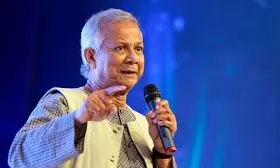At last, govt serious about privatising AI?
The airline can now be run professionally and will have the wherewithal to compete with the best worldwide.;

The government’s invitation for expression of interest (EOI) from prospective buyers of Air India is one of the most decisive documents issued by any government for disinvestment of its stake in the hapless national carrier. The offloading of 76 per cent would reduce the government’s shareholding to less than 25 per cent and is a commendable measure of the government’s seriousness. A shareholding of 25 per cent would have given the government representation on the board and led to accusations that it was interfering in its day-to-day working. With its stake below 25 per cent, the government is signalling its assurance to prospective buyers that there will be no interference. The airline can now be run professionally and will have the wherewithal to compete with the best worldwide. The successful buyer will be answerable to its shareholders for the airline’s performance.
The stipulation that the buyer must have a net worth of Rs 5,000 crores will take care of this. The sale will also boost the government’s finances as it had already poured in Rs 23,993 crores of taxpayer funds out of the Rs 30,231 crores needed for the turnaround plan. This money, as finance minister Arun Jaitley noted, will allow the government to undertake its commitments in sectors like health and education that have so far been overlooked, despite the new universal health scheme.
Will this make Air India great again? If it does, the government stands to benefit as it could monetise the rest of its holding and use the proceeds to reduce its losses and provide for payment of staff. The buyer, under the EOI, has to take over the airline’s debt and liabilities that come to a huge Rs 33,392 crores or $5.13 billion. Interestingly, if the buyer is a listed profitable entity, these losses could reduce its outgo. The government has done well to secure the interests of employees as the new owner can’t get rid of them for a year. It has also wisely taken on the responsibility of paying staff arrears, that comes to Rs 1,298 crores. Air India has 11,214 permanent employees, of a total of 24,823 employees.
This hopefully brings to near closure the privatisation process mooted way back in 2000 under the earlier NDA government headed by Atal Behari Vajpayee. Then disinvestment minister Arun Shourie had privatised 25-odd corporations, including hotels, but Air India was a political hot potato. It was an era when a national carrier was a country’s pride, but that era has passed, with new airlines mushrooming. Around 2004-05, Air India was nearly killed in favour of a private airline, and deprived of many profitable parking slots abroad, besides being burdened with a huge number of aircraft it didn’t need. One should also note the airline has assets of Rs 52,000 crores, both tangible and intangible, and enviable slots both at home and abroad.


